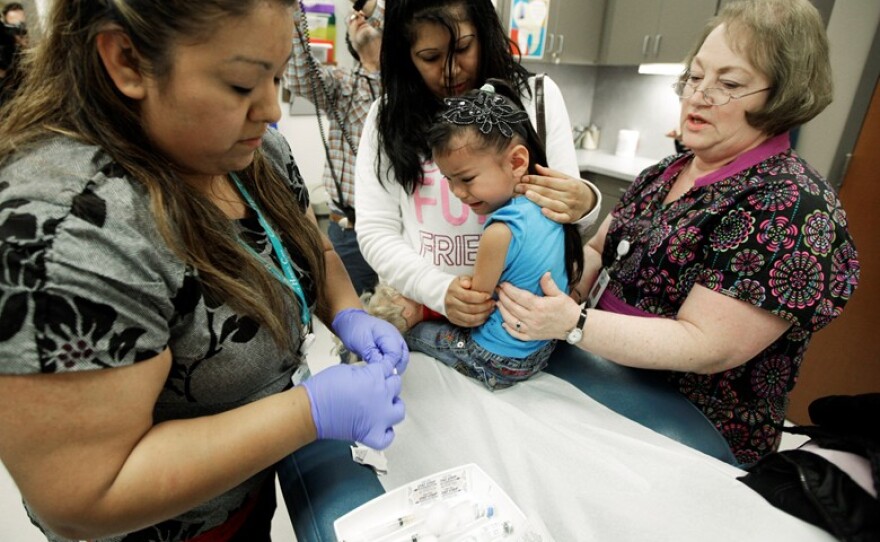Some California counties are showing substantially higher rates of whooping cough than the state average. The current epidemic could be one of the worst in 50 years.
Marin, Humboldt, Sonoma and Fresno counties have some of the highest rates of pertussis. Whooping cough surges every three to five years, but Dr. Dean Blumberg of the UC Davis Health System says this year is terrible.
"We had a big outbreak in 2010 so it wasn't completely unexpected to have another uptick in cases this year but it’s higher than anybody expected."
Blumberg says the biggest contributing factor in counties with high rates may be the number of parents who choose not to vaccinate their children because of personal beliefs.
However, at least in San Diego County, most of the people who got whooping cough were up to date with their immunizations.
Blumberg says Latinos are disproportionately affected by the disease. The ten infants who died in 2010 were Latino.
But the California Department of Public Health's Kathleen Harriman is not sure how to explain the whooping cough clusters.
"It's just hard to know," Harriman said, noting that good insurance and access to medical care can factor into the higher rates of diagnosis.
"We do think testing and awareness has a lot to do with it, certainly, the number of susceptible people makes a difference, and just kind of where pertussis gets into the population first."
The spread of whooping cough is still significant. Both Blumberg and Harriman say it's too soon to tell when the surge will taper off.






